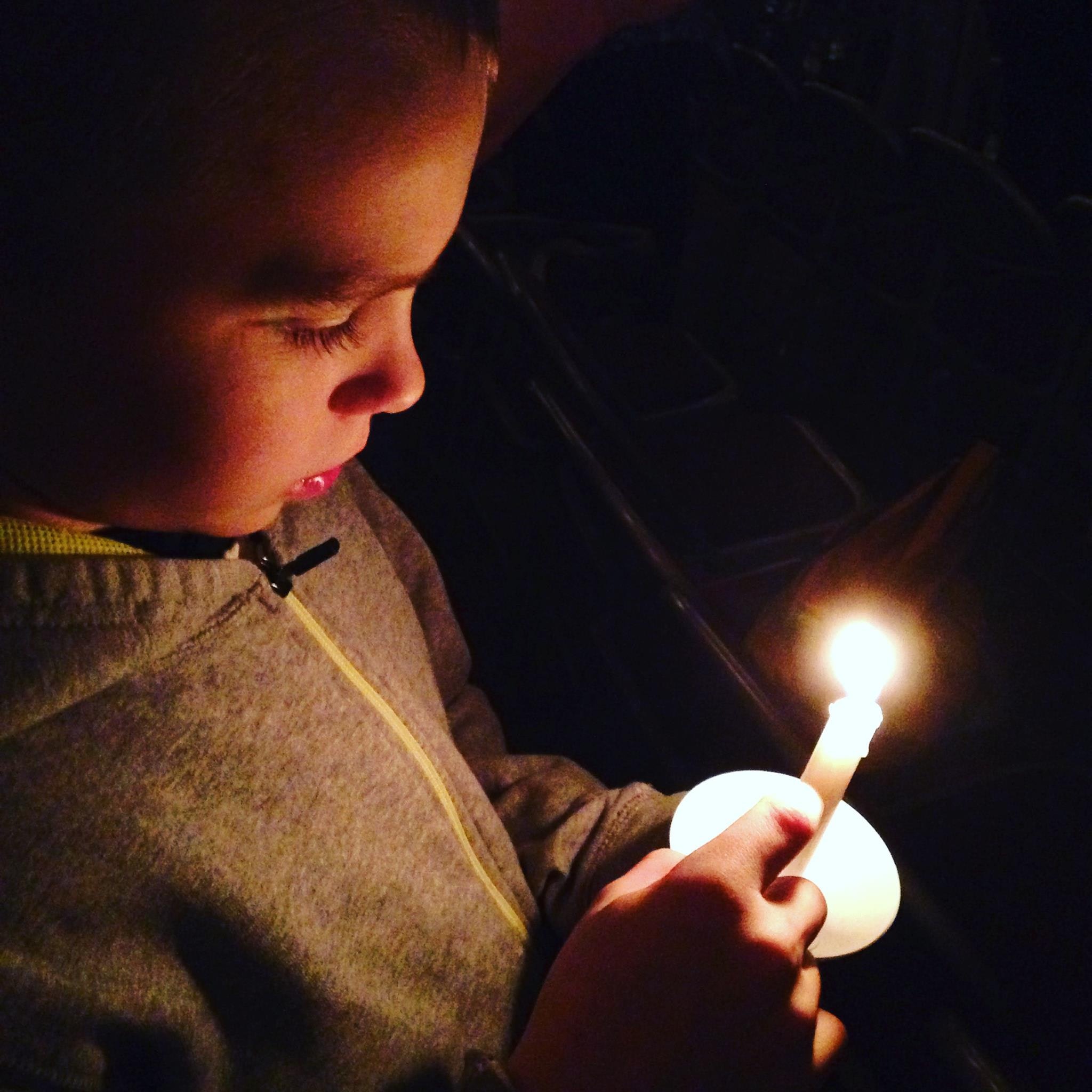Learning to Listen
BY SARAH SIGNORINO | December 12, 2018
I have two young daughters. Mary is almost 7. Clare is almost 5. Our household has conversations about listening on a daily basis. They generally sound like this: “Why aren’t YOU listening to me? Why aren’t you listening to ME? Why isn’t ANYONE listening to me?” If you have siblings or roommates or children or a partner or are a part of any type of community, I’m sure this sounds familiar to you. These questions—perhaps sprinkled with yelling, threats, ultimatums, and pleading—continue to pepper my household. And those in my family continue to feel unheard.
Generally, when we talk about listening, there is an authority figure who is the one seeking, perhaps even demanding, to be heard. Parents, teachers, employers, administrators, our government all demand to be listened to—sometimes their voice drowns out others in their quest to share their message.

Is it easier to listen to those in power? Does it come more naturally to us to sit up straighter, pull out our earbuds, and open our listening ears when a boss calls a staff meeting to order or when your partner looks into your eyes and says “I NEED YOU TO LISTEN TO ME”? Is it easier to listen when you are bombarded by the same advertising, TV commercials, most-hearted Instagram posts, and political tweets? Why are these voices easier to listen to—or maybe even hard to avoid?
If these are times when listening is easy—when things are in your face or come from voices of authority, then where and when is listening hard?
When is the hardest part of the year to listen? I’d argue it’s right now. We are approaching end of the year, the end of the semester, more holiday celebrations, with added stresses from money, family, friends,  transportation, and mental and physical health. There are recitals, musical performances, and projects that need to be finished. And the whining (perhaps it’s just in my house) because of lack of naps, different schedules, and sugary foods. It’s dark. It’s cold here in Buffalo. Sometimes it’s hard enough to get through the day—plowing through work and commitments—and your kids’ work and commitments—until you can rest again. This is the season when it is the most difficult to listen to anyone—let alone to a friend, a loved one, a child, a stranger in need, and even to the voice of God.
transportation, and mental and physical health. There are recitals, musical performances, and projects that need to be finished. And the whining (perhaps it’s just in my house) because of lack of naps, different schedules, and sugary foods. It’s dark. It’s cold here in Buffalo. Sometimes it’s hard enough to get through the day—plowing through work and commitments—and your kids’ work and commitments—until you can rest again. This is the season when it is the most difficult to listen to anyone—let alone to a friend, a loved one, a child, a stranger in need, and even to the voice of God.
This is exactly why Advent is my favorite season. It encourages us to wait, to wake up, to be ready, to prepare—but most of all: to listen. And not just to listen to the loudest voices—those seeking the most likes on social media, those obnoxious voices in our news stream. We are challenged to listen to those on the margins. These voices can direct our hearts, our future, our dreams. They can challenge us. They can help remove our barriers. These voices are calling us to conversion.
So we consider the readings from the second Sunday of Advent. Luke reflects on listening. He shares this same quandary that we face today—to whom do we listen? Luke spends the first half of the gospel naming important political and religious leaders: the emperor, governor of Judea, the tetrarch of Galilee, neighboring leaders, and two high priests. These are the authorities of Jesus’ day. These are the loud voices ruling, directing, and demanding. But—and this is so critical—“the word of God came to John, the son of Zechariah,in the desert.” God did not choose the emperor, the governor, the tetrarch, or the high priest. God chose John, a simple man, who was in the desert. God chose someone without any clout, someone who would be hard to listen to.
John would be the person charged with preparing the way of the Lord. John wasn’t fearful of the political or religious pressures of the time. He was eccentric. He was the voice tasked with going forth to convert others and prepare for the coming of Christ.
In our first reading, the prophet Baruch also talks about preparation and listening. His address is to the people of Jerusalem. Baruch commands the long-suffering people to change their clothes and attitudes. He says “take off your robe of mourning and misery; put on the splendor of the Glory of God!” God has commanded that physical burdens be removed—mountains made low and gorges filled in—so that Israel can move forward with security, joy, and the light of glory.
 St. Paul reflects more on the internal journey as he prays that we increase our love, our knowledge, our perception—and, that we are able to “discern what is of value.”
St. Paul reflects more on the internal journey as he prays that we increase our love, our knowledge, our perception—and, that we are able to “discern what is of value.”
Our readings last weekend emphasized the need to prepare, to quiet down the loud noises and listen. Who is John today? Is he the voice of a friend struggling with depression? Is he the voice of another migrant family, similar to the Holy Family, who isn’t safe in their home country? Is he the quiet voice of a child or sibling or parent or grandmother who isn’t being heard but whose voice and message is prophetic?
What barriers in our life need to be taken away so the road to God is accessible? Who can help you take these barriers away? How can you assist others with their barriers?
We are halfway through Advent. Use this time wisely. Take this time to ask God to help you discern what is of value in your life and whose voice you should be listening to.
I leave you with a final thought: I asked Mary, my daughter, why taking the time to listen is important. She said, “When you listen, you can learn about another person. You can hear God. This makes the planet better.”
Sarah is the Director of Mission & Identity at Canisius College. Sarah has been a member of the Ignatian Family for 18 years and loves all of the connections, friends and justice-y things that have developed during that time! She lives with her husband, two daughters, and two cats in the City of Good Neighbors, Buffalo, NY. Sarah loves reading, donuts, women’s spirituality and going on adventures with her daughters.








What you wrote is so wonderful. Thank you for reminding me to LISTEN!!!
Lord bless us to listen.